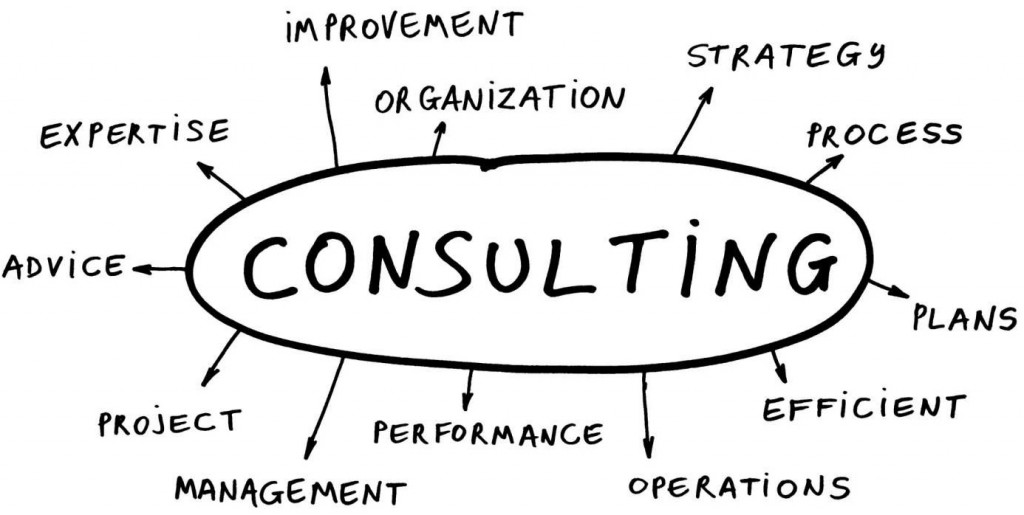
You might consider a career as a consultant if you're thinking about pursuing a career. This type is smaller and can offer more specific services. There are other benefits, such as a more entrepreneurial culture or higher salaries. Additionally, many boutique firms offer employees a place where they can grow and develop professionally.
Smaller size
A boutique, smaller-sized consultancy firm may be an option if the cost of great resources is a concern. There are many benefits to working with smaller companies. They can also be more affordable than larger companies. However, smaller consulting firms have a number of disadvantages.
Smaller firms may offer better opportunities for career growth than big companies. They are more focused on industry knowledge and fit than size. Because they are smaller firms than global consultancies that screen applicants, they are less likely and more inclined to hire a "blank-slate" candidate.
Specialized services
A boutique consulting firm specializes in a particular field and works with clients to solve specific problems. They provide a range of services including data management, cloud migration and advanced analytics powered with machine learning. These companies also use agile methodology, which is more flexible and responsive. They can react quickly to changes in the scope and scope of a project.

Boutique consulting firms specialize in specialized services to help enterprises solve unique business problems. Their team's expertise and experience is used to assist enterprises with their most pressing problems. Their expertise allows them the ability to help enterprise teams transform their businesses using technology. In a time when companies must react faster than ever before, boutique consulting firms are essential partners.
Entrepreneurial culture
Smaller boutique consulting firms employ less than 200 people, and offer highly personalized services. They are often a work family, a group of people who have a shared passion for their work. A boutique consulting firm is more flexible than others, and allows their employees to work from home when needed.
Boutique consulting firms often have a more entrepreneurial culture than traditional consulting firms. Entrepreneurial spirit can be seen in both the firm's culture and client service. This environment can be highly conducive to creative and innovative consulting.
Higher salaries
Boutique consulting has some advantages over traditional MBB. Smaller firms can be more flexible than large ones. You will be expected to work less than fifty hours per week, travel one week per monthly, and are less rigid in your reviews. As a result, small consulting firms are more flexible regarding compensation and benefits that larger companies.
For example, salaries for new hires at boutique consulting firms are significantly higher than at large firms. The average salary for a new graduate is between PS30,000 to PS42,000 in the first two-three years. Boutique consulting firms offer many additional financial benefits.

A simplified process
Smaller consulting firms offer the benefit of being smaller and more flexible in their operations. The senior staff is highly skilled in their field. This allows them to provide more advice and better implementation support for clients. They also have lower travel costs and more flexibility. They can quickly move onto the next project.
Boutique consulting firms focus on a specific area of expertise. They specialize in specific areas of expertise and help clients improve their business. Some boutique companies specialize in the public sector and others in specific industries.
FAQ
Why do you need consultants?
There are many reasons why you might need to hire consultants:
-
You may have a problem or project that your organization needs to solve.
-
You would like to improve your skills or learn new things
-
It is important to work with an expert on a subject area
-
No one else is available to take on the task.
-
You feel overwhelmed with all the information you see and don’t know where it is.
-
You don't have the money to pay someone full time
The best way to find a good consultant is through word of mouth. Ask your friends and colleagues if they know of any trustworthy consultants. Ask your friends and family for referrals if you know someone who is a consultant.
If you choose to use online directories such LinkedIn, make sure to use the "Search People” function to locate consultants in your area.
What skills do I need for consulting?
Consultants should be able to communicate effectively and have excellent analytical skills. This is important because you are working on projects where you may not know exactly what you are doing. You must learn how to manage people and solve problems quickly.
Excellent communication skills are also essential. Most clients expect a reply within 24 hours. They assume that you won't respond if they don't hear from them within 24 hours. It is crucial that you keep them up to date and make sure they know what's happening.
What can I expect of my consultant?
When you choose your consultant, they should respond within a few working days. They will typically ask for information about the company, such as its mission, goals. products and services. budget. After that, they will send you a proposal detailing the scope of work, expected time frame, fees and deliverables.
If all goes well, the parties will then negotiate a written agreement. The type of relationship between the parties (e.g., employee-employer, independent contractor-employer) will affect the terms of any contract.
If everything goes well, the consultant should start work immediately. The consultant will have full access to your files and resources. You'll also have access to their skills and knowledge.
Don't assume that someone who is a consultant knows everything. It takes practice and hard work to become an expert in the field you are consulting. You shouldn't expect your consultant will know everything you need to know about your business.
Do I have to pay tax on consulting income
Yes. Taxes will be charged on consulting profits. This amount will depend on how much you earn each year.
If you're self employed, you can deduct expenses beyond your salary.
But you won't be able to deduct interest payments on loans, vehicle depreciation, or the cost of equipment.
If you earn less than PS10,000 per year, 25% can be claimed back.
But even if you're earning more than this threshold, you might still be taxed depending on whether you're classed as a contractor or employee.
The tax system for employees is PAYE (pay-as-you earn), while VAT is applied to contractors.
What types of contracts exist for consultants?
Most consultants sign standard employment agreements when hired. These agreements include details such as how long the consultant will stay with the client, what he/she can be paid, and other important information.
Contracts also specify which areas of expertise the consultant will focus on and how the consultant will be compensated. An agreement could state, for example, that the consultant will offer training sessions, workshops and webinars.
Other times, the consultant simply agrees to complete specific tasks within a specified timeframe.
Consultants often sign independent contractor contracts in addition to their standard employment agreements. These agreements allow the consultant freedom to work without being paid.
Statistics
- "From there, I told them my rates were going up 25%, this is the new hourly rate, and every single one of them said 'done, fine.' (nerdwallet.com)
- 67% of consultants start their consulting businesses after quitting their jobs, while 33% start while they're still at their jobs. (consultingsuccess.com)
- Over 50% of consultants get their first consulting client through a referral from their network. (consultingsuccess.com)
- WHY choose me: Why your ideal client should choose you (ex: 10 years of experience and 6-week program has helped over 20 clients boost their sales by an average of 33% in 6 months). (consultingsuccess.com)
- According to statistics from the ONS, the UK has around 300,000 consultants, of which around 63,000 professionals work as management consultants. (consultancy.uk)
External Links
How To
How To Find The Best Consultant?
Ask yourself what you want from your new consultant before you start looking. Before you begin searching for a consultant to help you, you should be clear on your expectations. It is important to make a list with all the requirements you have for a consultant. This could include things like; professional expertise, technical skills, project management ability, communication skills, availability, etc. You might also want to talk with colleagues or friends about their recommendations. Ask your friends and colleagues if they have had bad experiences with consultants in the past. Compare their recommendations with yours. Do some internet research if they don't have recommendations. Many websites allow people to post reviews about their work experience, including Angie's List and Indeed. You can use the comments and ratings left by others to help you find potential candidates. Once you have a short list of candidates, contact them to arrange an interview. In the interview, discuss your needs and ask them for their suggestions on how you can achieve them. It doesn’t matter who recommended them to you, just make sure they understand what you are trying to achieve and how they can help.